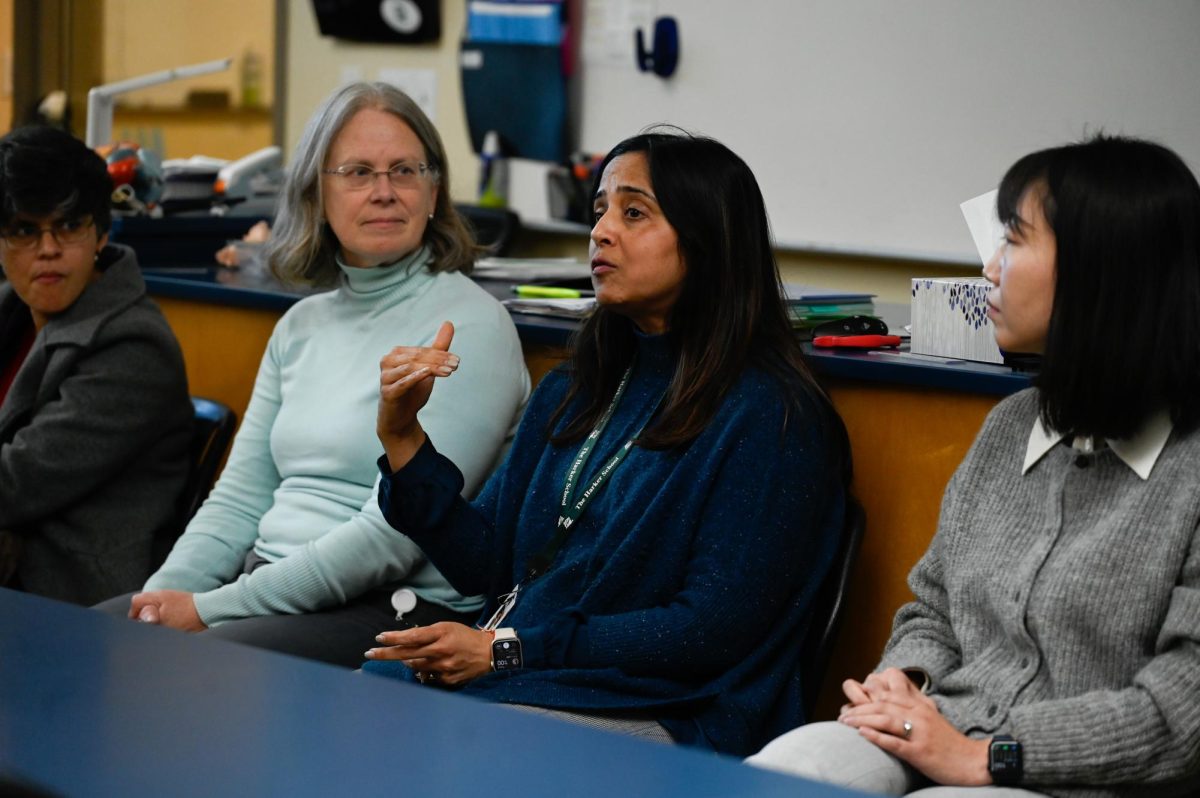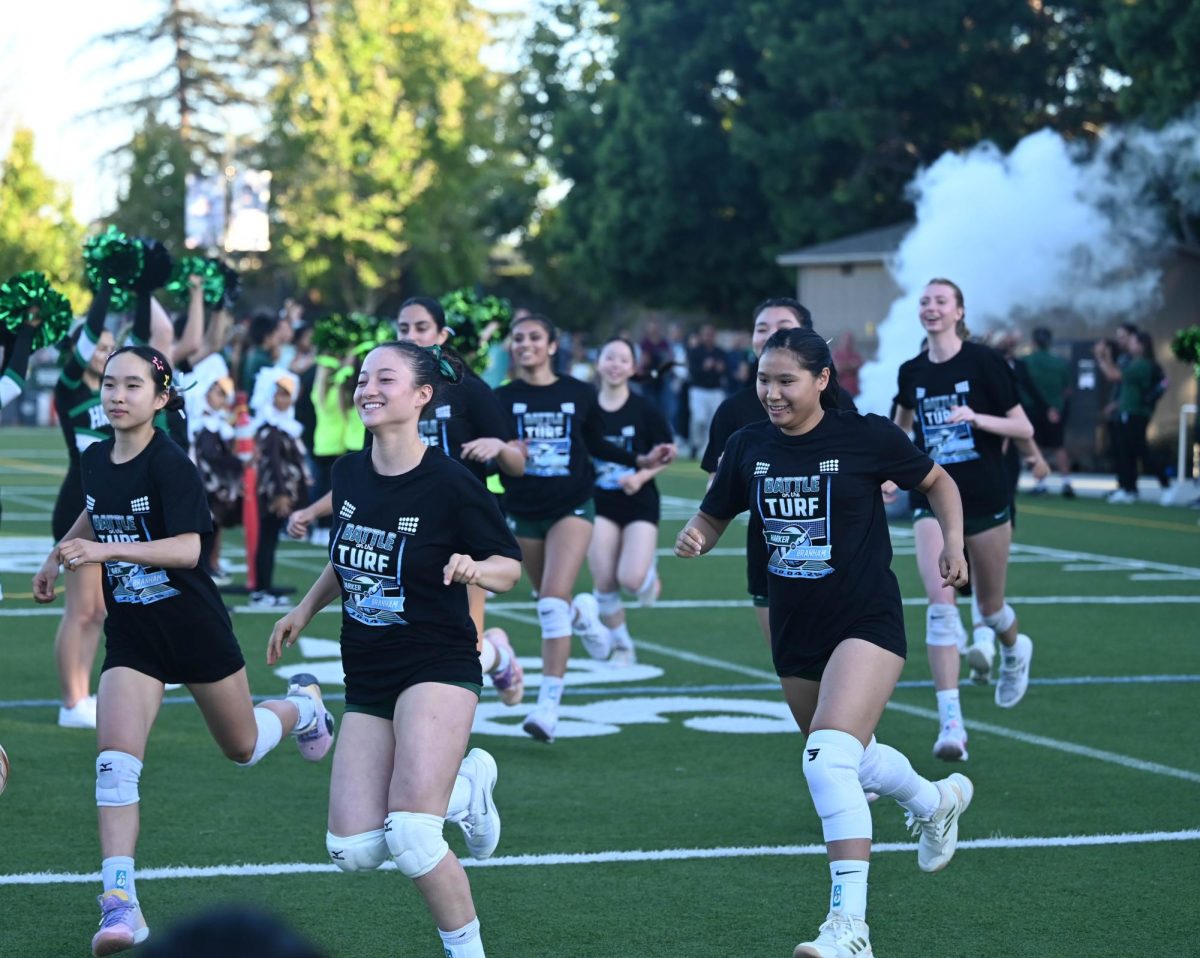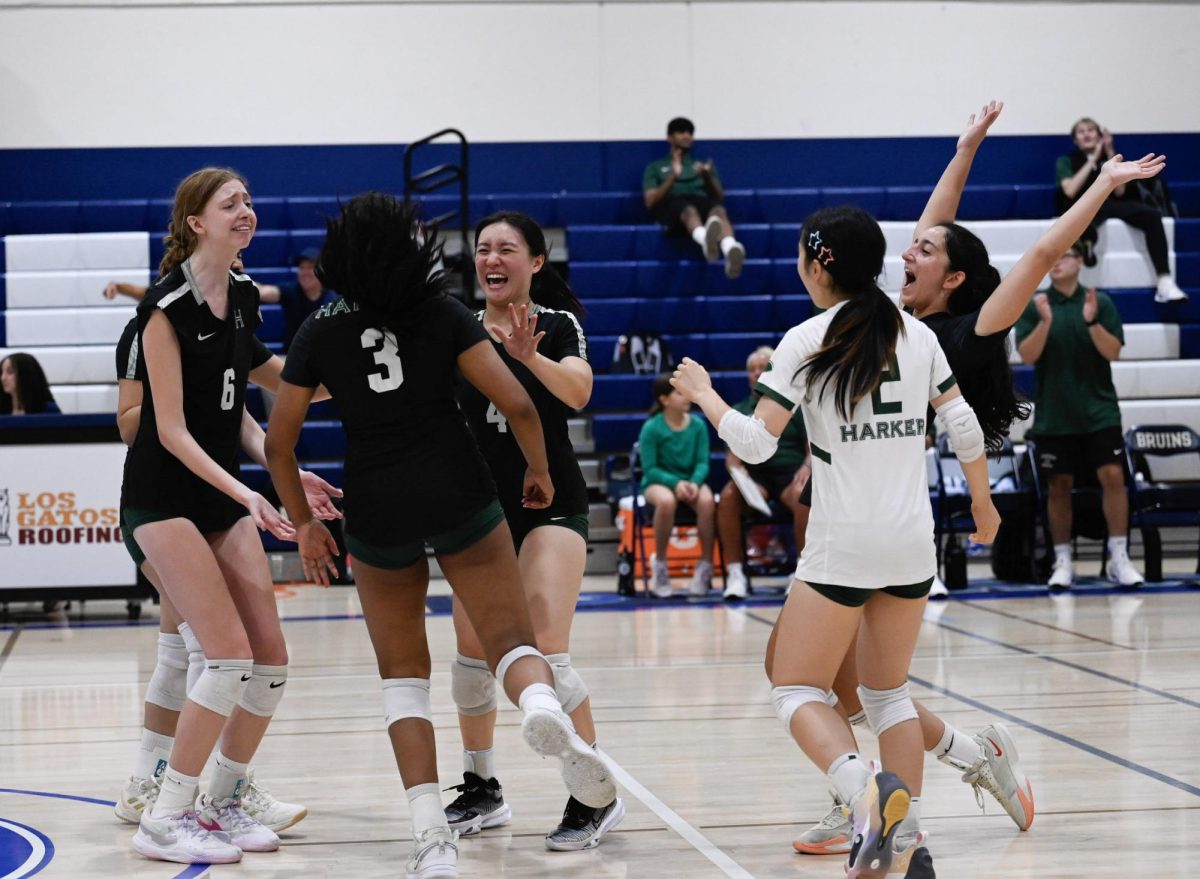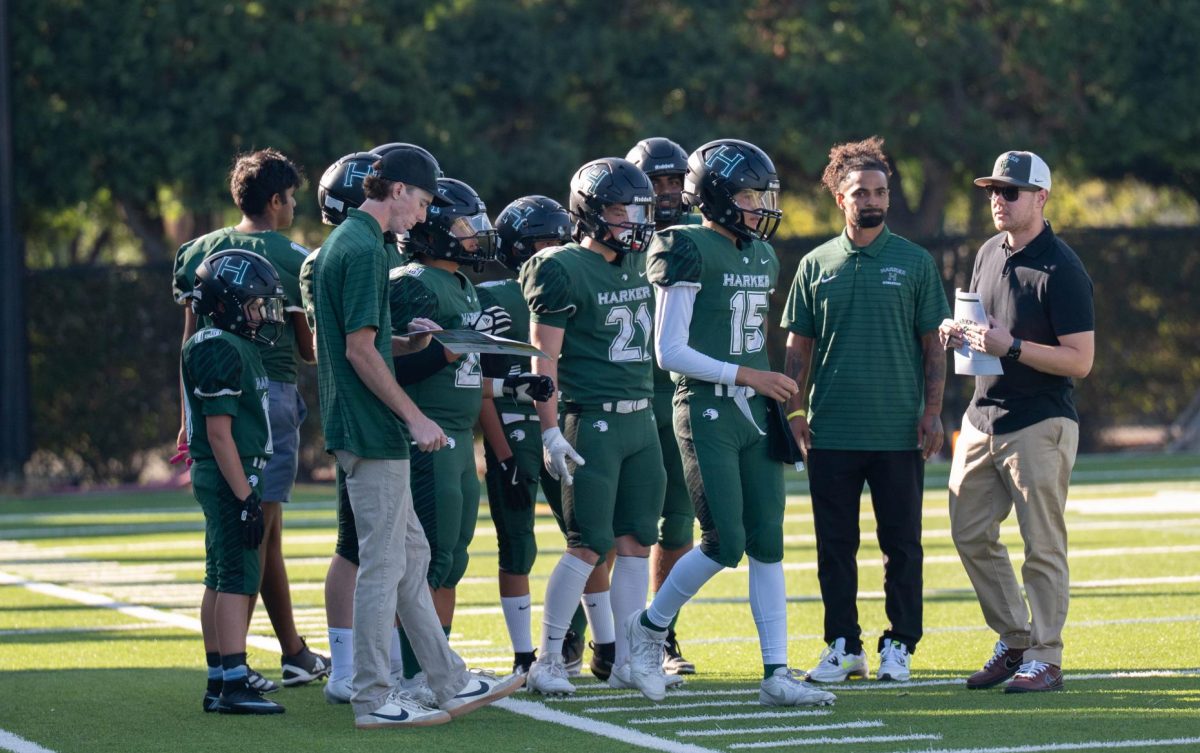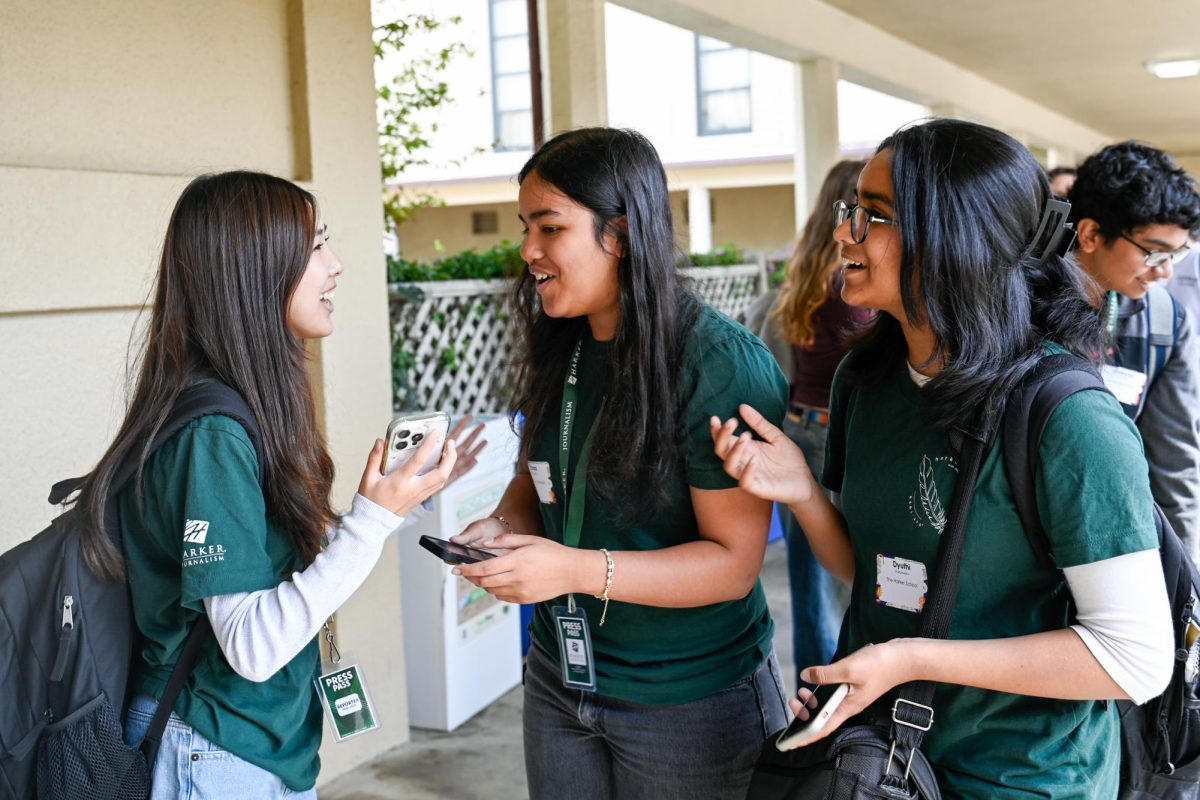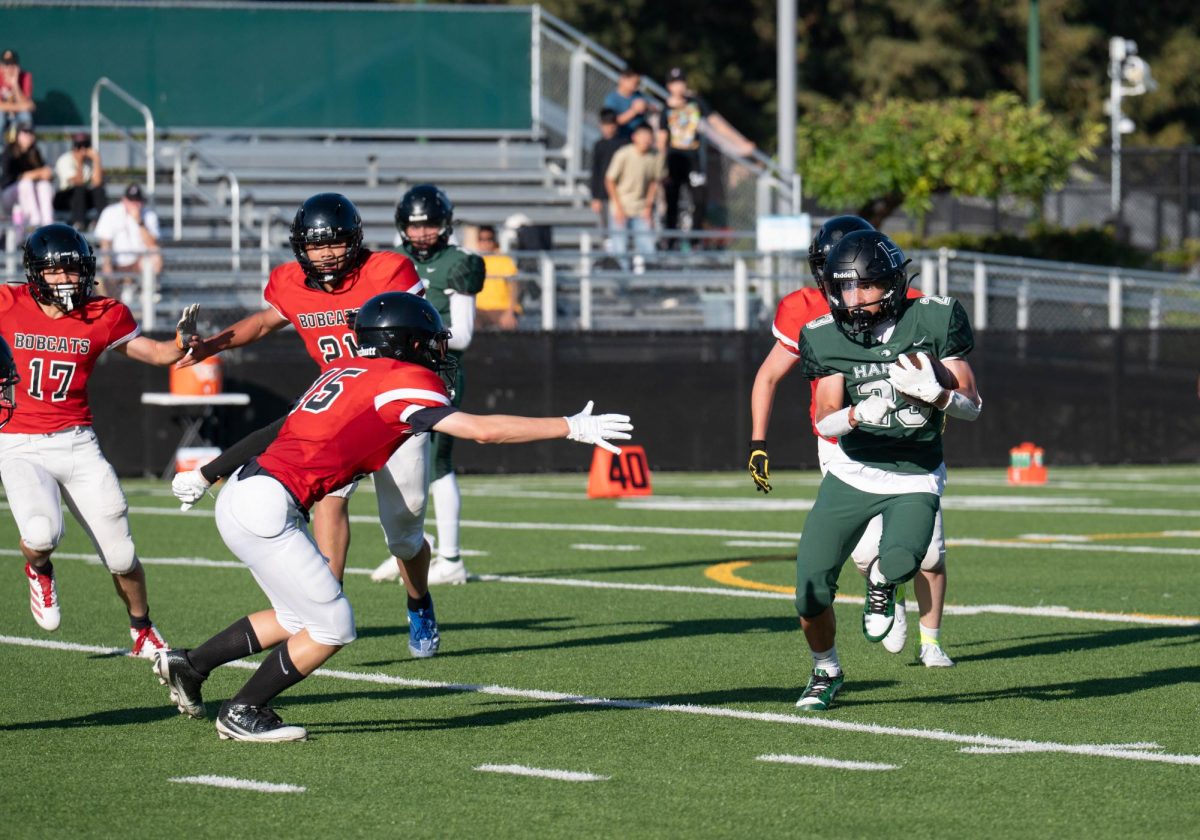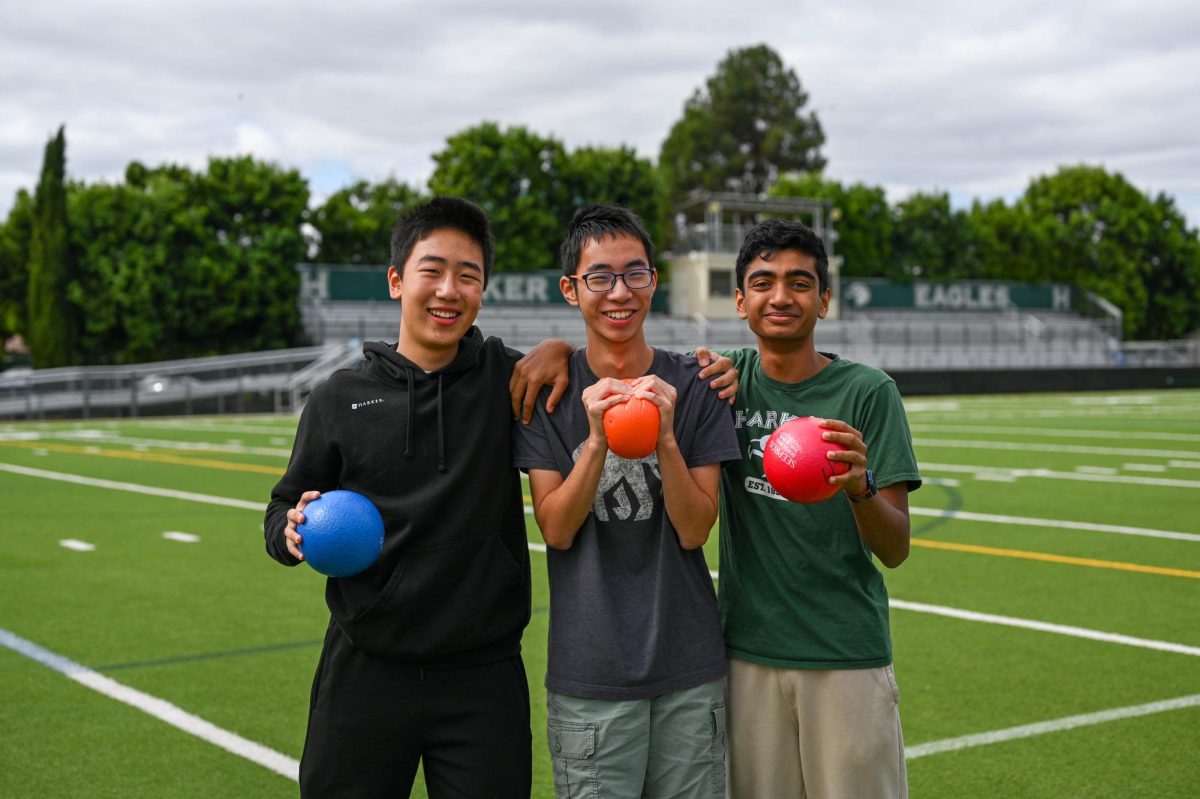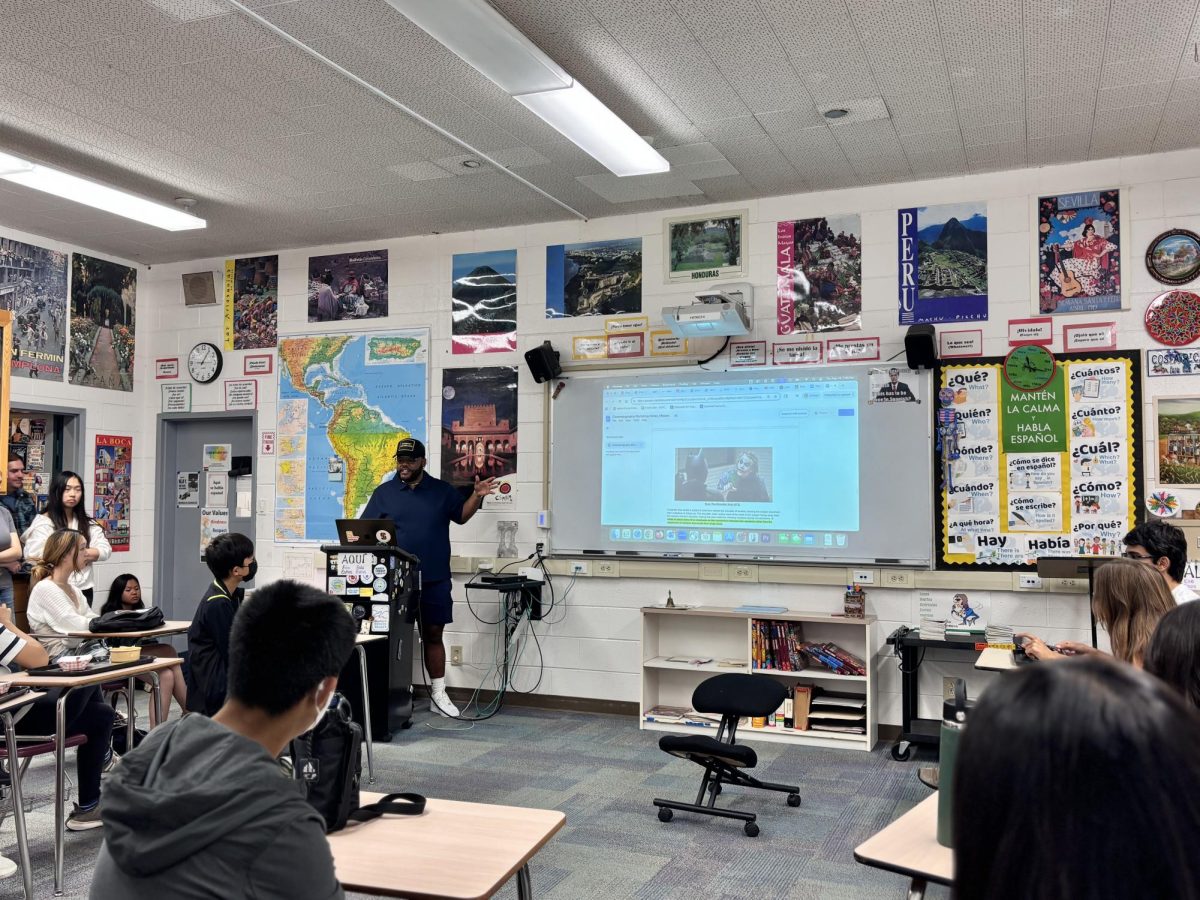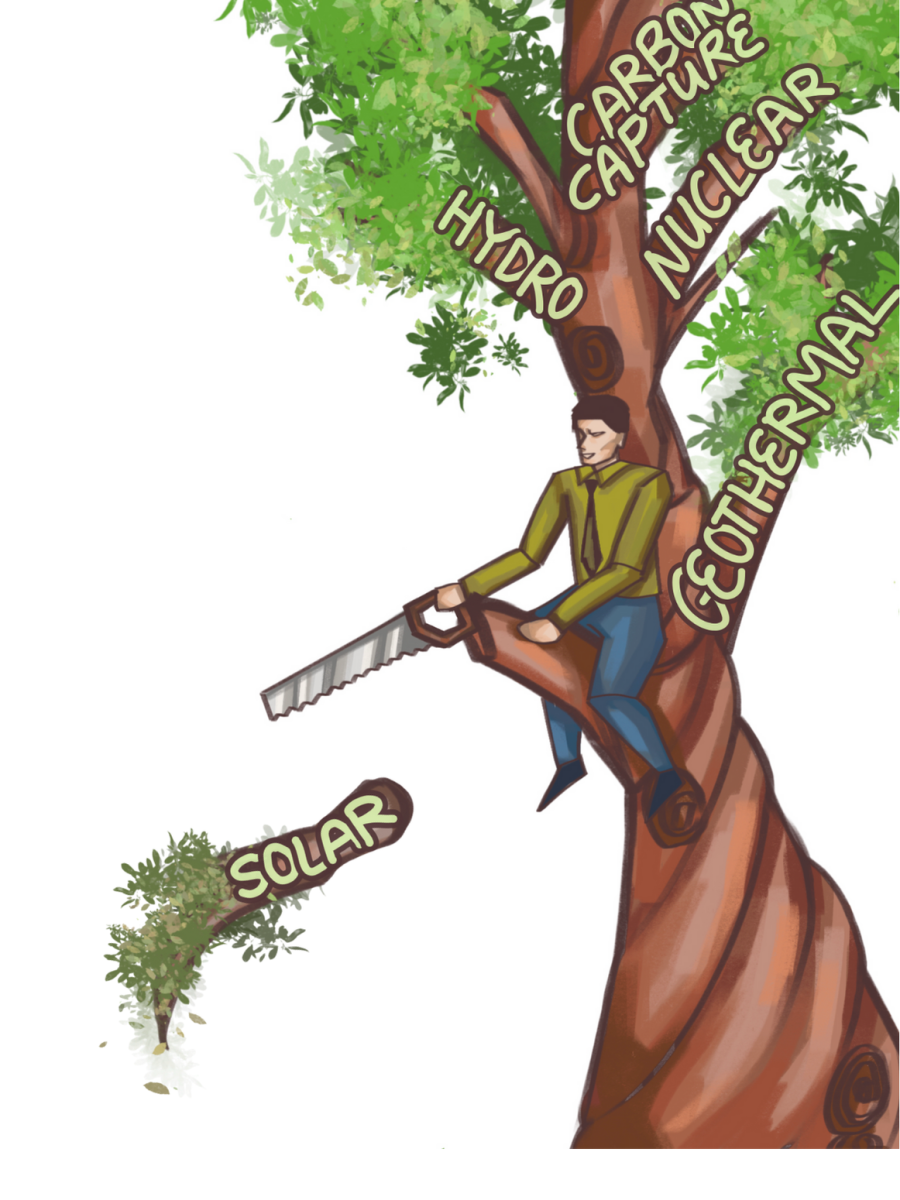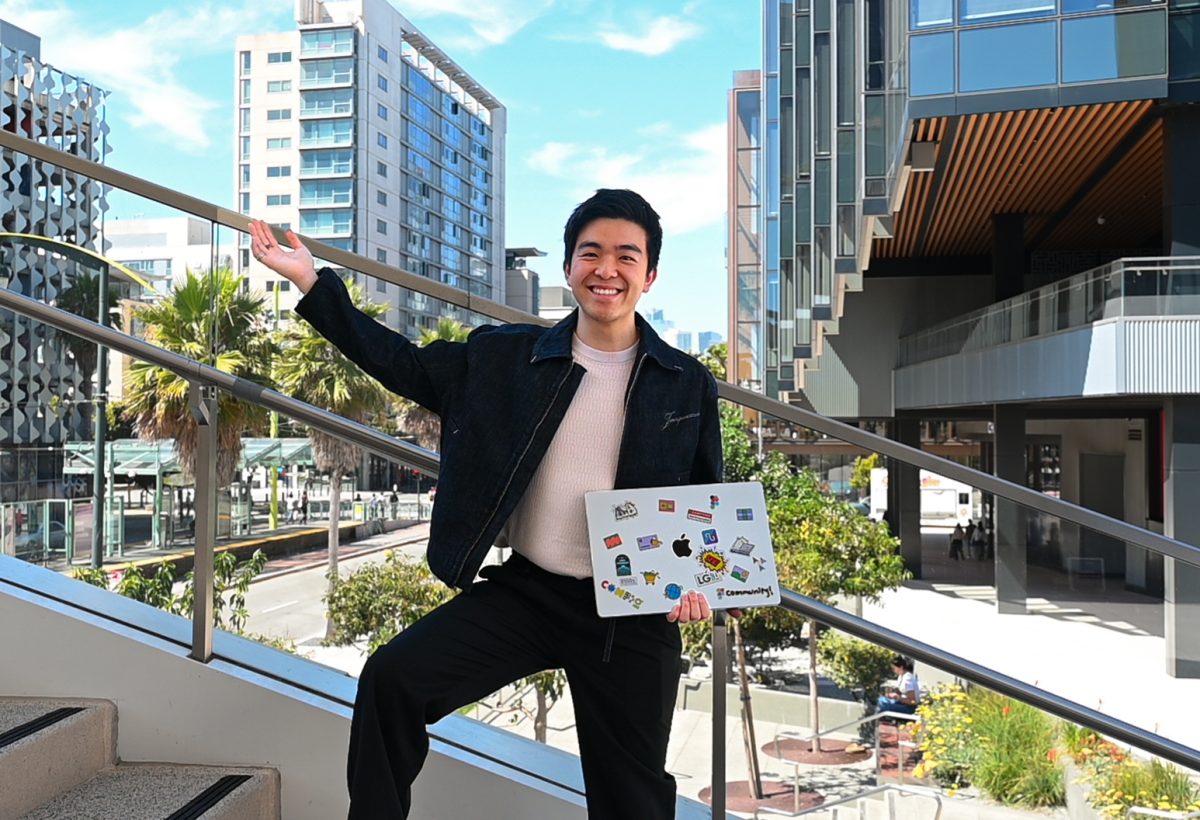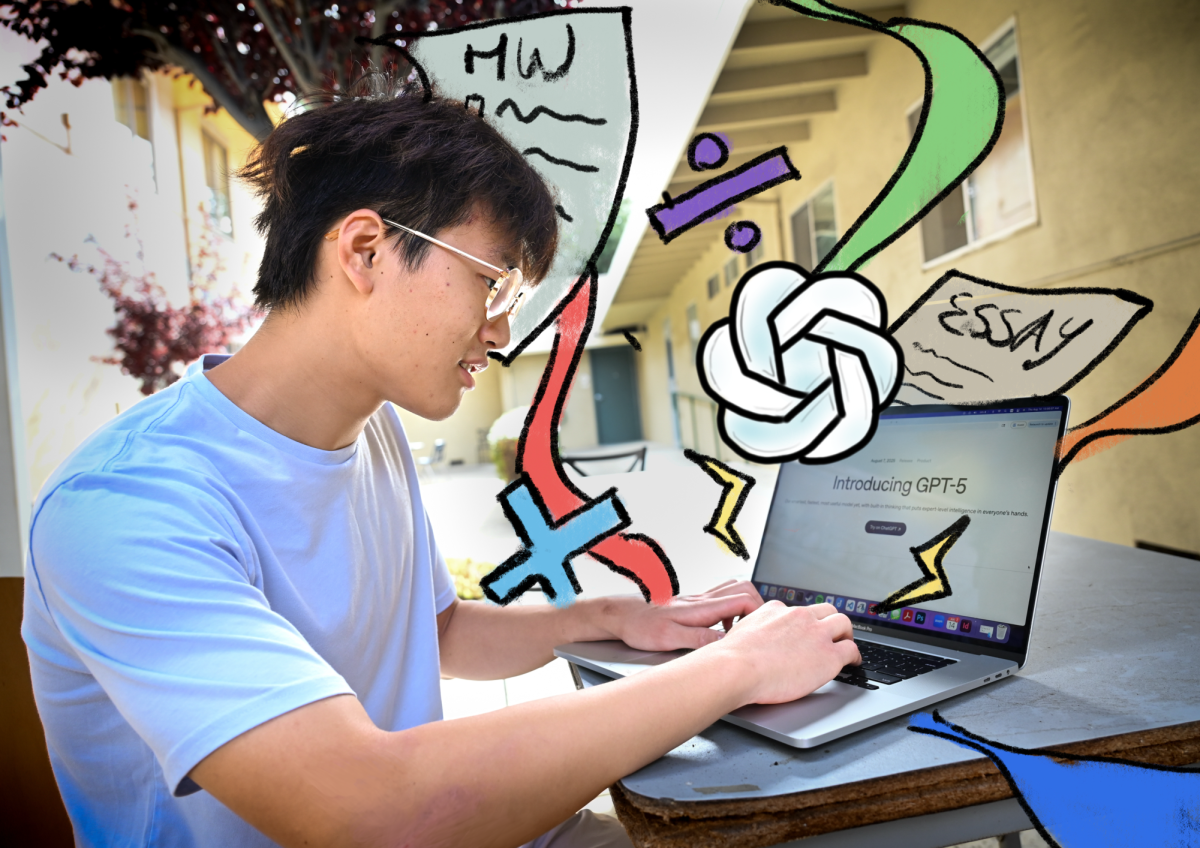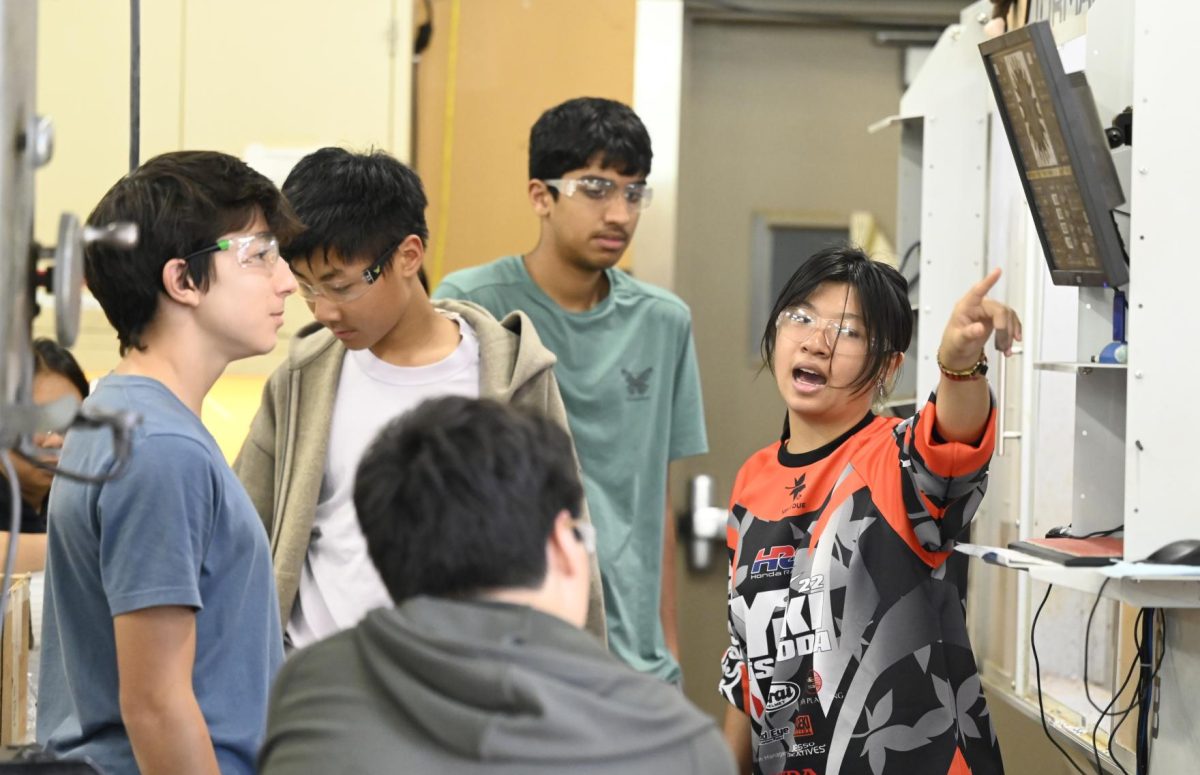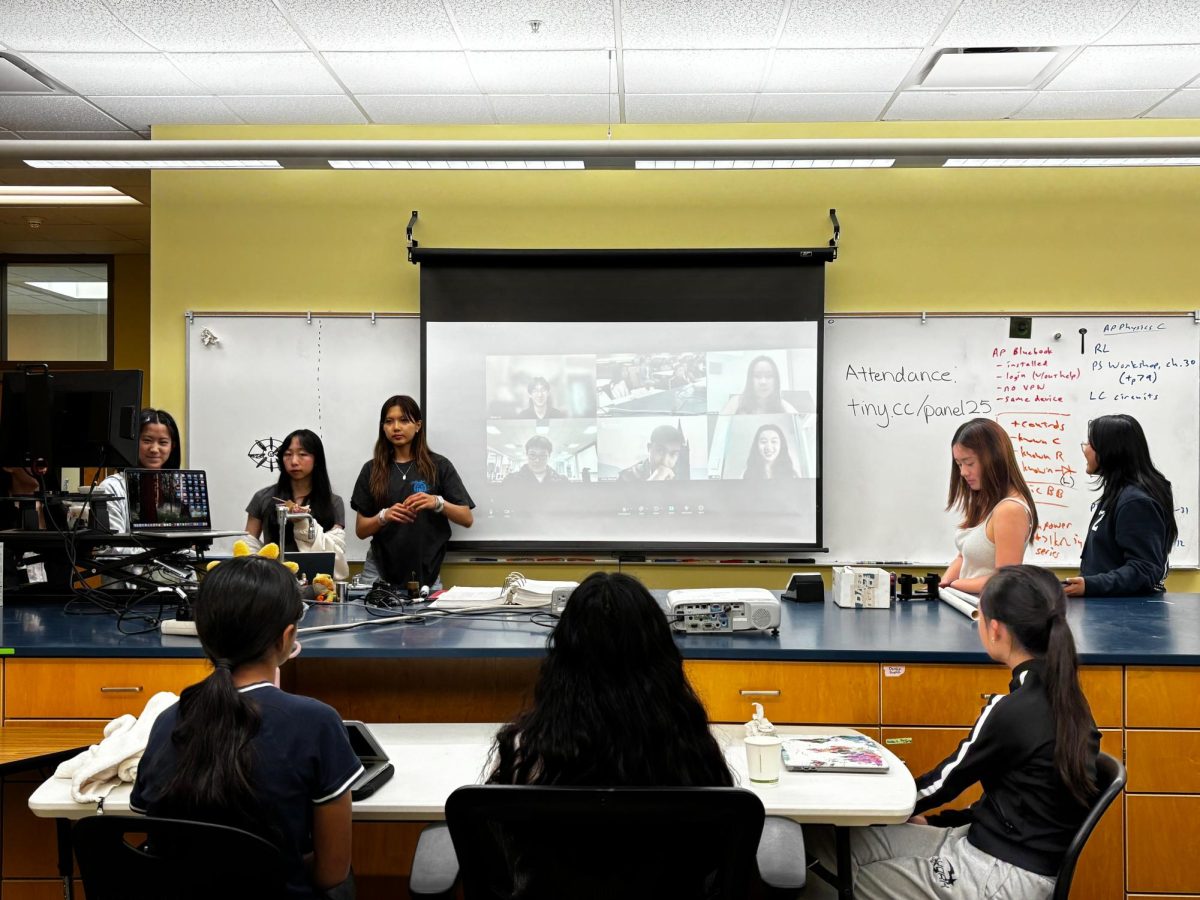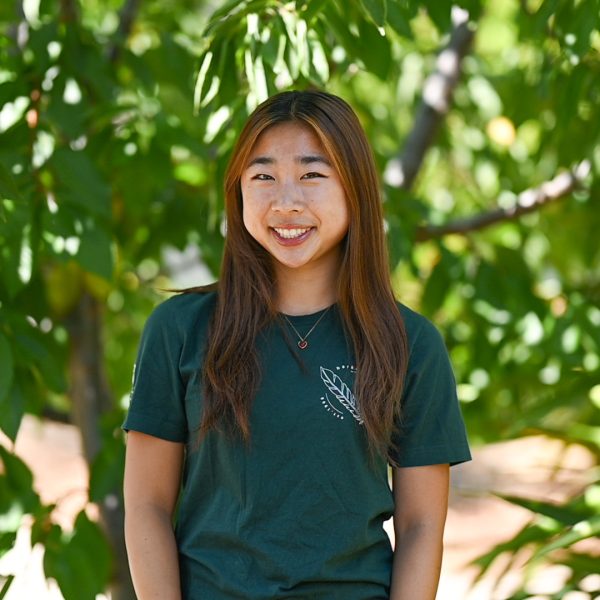Math teacher Caren Furtado, physics teacher Miriam Allersma, computer science teacher Anu Datar and chemistry teacher Ran Tao spoke about their journeys through their respective fields at a Women in STEM speaker panel during lunch on Thursday.
Despite coming from different backgrounds, the STEM instructors emphasized both patience and resilience when dealing with challenges.
Furtado, who originally worked in business, found her trajectory completely upended when her husband received a job in the U.S., forcing them to leave India. Without a work visa, she enrolled in art school and started a small business selling baked goods, before ultimately becoming a math teacher.
“Everything we are saying, we know because we are old people,” Furtado said. “You’ll figure it out. Everyone’s balance will come at different times. Life will sometimes make you do more of something and less of something and that’s just how it is.”
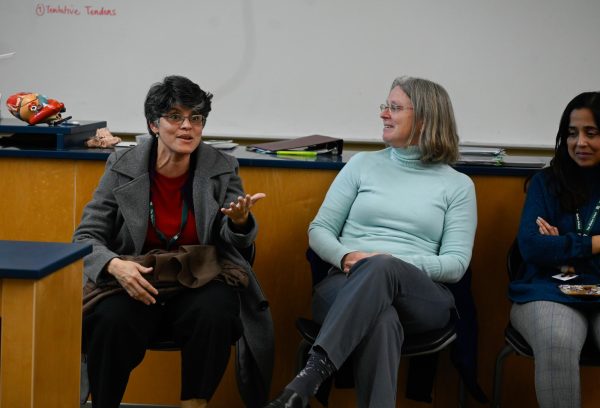
Reflecting on their commitments both to their families and their careers, the teachers noted the importance of self-compassion. Working at numerous tech companies after studying computer science in college, Datar recalled intense periods of burnout that eroded her motivation. She shared how she would feel immensely guilty and ashamed about missing important moments in her personal or professional life.
“Women tend to experience imposter syndrome at a way higher level than men,” Datar said. “Any time anybody gives me a compliment, I feel that I don’t deserve it, and I find excuses or I find ways of saying ‘No, no, that’s not true.’ I have learned that I am my worst and harshest critic. I don’t think anybody else has the same expectations from me that I set on myself.”
WiSTEM Vice President of Internal Affairs Kaitlyn Su (12) helped organize the event, which the club last hosted prior to the pandemic. She expressed how the topics the teachers raised resonated deeply with her own mindset.
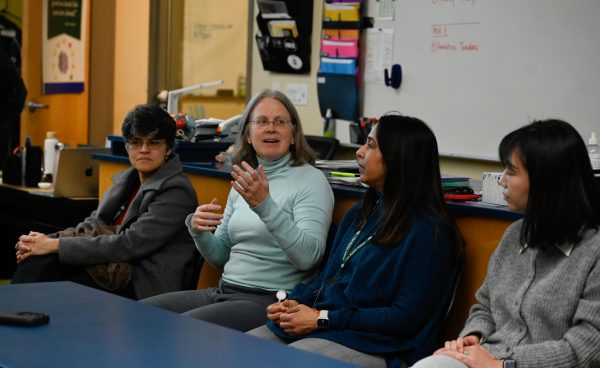
“It taught me a lot about the mistakes I was making in my own life that have prevented me from living my life to the fullest,” Kaitlyn said. “It’s easy to say that you can always do more and you have to do more to achieve at the same level as others or excel. But when you look back on it, then you really don’t enjoy a lot of your life.”
While Furtado and Datar followed indirect paths to their respective fields, Dr. Allersma and Dr. Tao found their passion for STEM early on in life.
Dr. Allersma’s high school chemistry teacher sparked her interest in science, bringing the class to lectures at the University of Pittsburgh. Although she intended to major in chemistry in college, she found that her true interests lay in physics.
Dr. Tao, on the other hand, attributed her love for science to her parents, who were both STEM professors.
“We would have different topics and conversations around the dinner table or at home,” Tao said. “I knew I was a STEM kid when I was eight years old. That was the only part I was interested in, and I always wanted to talk more about it.”
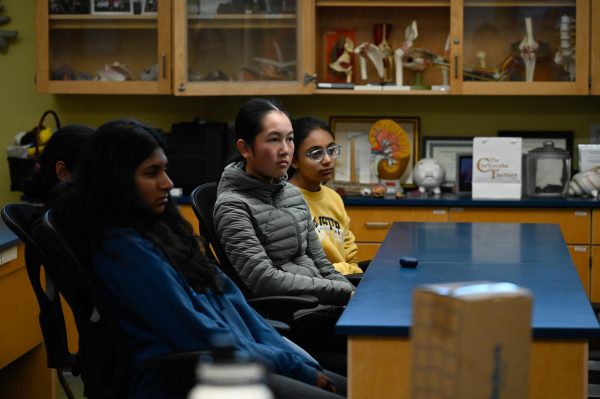
All of the panelists recognized strong mentors who encouraged their pursuits in the STEM field, underscoring the significance of a tight-knit community. Furtado highlighted that in order to push and inspire each other, students themselves must act as guides, fostering a culture of collaboration and growth.
“It doesn’t matter what age you are, you can be that support system for someone else just as that person is your support system,” Furtado said. “You have to remember that if we didn’t have other girlfriends who lifted us up, and we were not those girlfriends with somebody else, we wouldn’t be where we are. You can be that person as well.”


















![“[Building nerf blasters] became this outlet of creativity for me that hasn't been matched by anything else. The process [of] making a build complete to your desire is such a painstakingly difficult process, but I've had to learn from [the skills needed from] soldering to proper painting. There's so many different options for everything, if you think about it, it exists. The best part is [that] if it doesn't exist, you can build it yourself," Ishaan Parate said.](https://harkeraquila.com/wp-content/uploads/2022/08/DSC_8149-900x604.jpg)




![“When I came into high school, I was ready to be a follower. But DECA was a game changer for me. It helped me overcome my fear of public speaking, and it's played such a major role in who I've become today. To be able to successfully lead a chapter of 150 students, an officer team and be one of the upperclassmen I once really admired is something I'm [really] proud of,” Anvitha Tummala ('21) said.](https://harkeraquila.com/wp-content/uploads/2021/07/Screen-Shot-2021-07-25-at-9.50.05-AM-900x594.png)







![“I think getting up in the morning and having a sense of purpose [is exciting]. I think without a certain amount of drive, life is kind of obsolete and mundane, and I think having that every single day is what makes each day unique and kind of makes life exciting,” Neymika Jain (12) said.](https://harkeraquila.com/wp-content/uploads/2017/06/Screen-Shot-2017-06-03-at-4.54.16-PM.png)








![“My slogan is ‘slow feet, don’t eat, and I’m hungry.’ You need to run fast to get where you are–you aren't going to get those championships if you aren't fast,” Angel Cervantes (12) said. “I want to do well in school on my tests and in track and win championships for my team. I live by that, [and] I can do that anywhere: in the classroom or on the field.”](https://harkeraquila.com/wp-content/uploads/2018/06/DSC5146-900x601.jpg)
![“[Volleyball has] taught me how to fall correctly, and another thing it taught is that you don’t have to be the best at something to be good at it. If you just hit the ball in a smart way, then it still scores points and you’re good at it. You could be a background player and still make a much bigger impact on the team than you would think,” Anya Gert (’20) said.](https://harkeraquila.com/wp-content/uploads/2020/06/AnnaGert_JinTuan_HoHPhotoEdited-600x900.jpeg)

![“I'm not nearly there yet, but [my confidence has] definitely been getting better since I was pretty shy and timid coming into Harker my freshman year. I know that there's a lot of people that are really confident in what they do, and I really admire them. Everyone's so driven and that has really pushed me to kind of try to find my own place in high school and be more confident,” Alyssa Huang (’20) said.](https://harkeraquila.com/wp-content/uploads/2020/06/AlyssaHuang_EmilyChen_HoHPhoto-900x749.jpeg)



